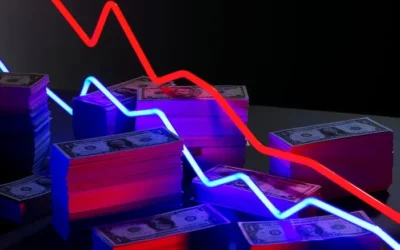A Race Against Time: Earth’s Accelerating Spin and its Implications
In recent years, there has been a puzzling phenomenon occurring on Earth—our planet is spinning faster. This acceleration in the Earth’s rotation has led scientists to predict that certain days are going to become shorter, with July 22 set to be recorded as one of the shortest days in history. As we grapple with the implications of this rapid transition, the question arises: how do we measure and adapt to these slight fluctuations in our planet’s timekeeping?
The Science Behind a Spinning Planet
To put things in perspective, the rotation of the Earth has a significant impact on our day-to-day lives. A full rotation is what defines a 24-hour day. But the Earth operates on a delicate balance of gravitational and cosmic forces that can influence its spin. Over time, these factors—including climate change, melting glaciers, and even seismic activity—can cause shifts in our planet’s rotational speed.
According to various studies, scientists have observed that the Earth has been spinning faster than the norm, particularly since 2020. In fact, 2020 recorded the shortest days ever noted since tracking began in the 1960s. In comparison to the standard 86,400 seconds in a day, some days clocked in at just 86,401 seconds, and occasionally even less, leading to suggestions that timekeepers might need to rethink how we keep track of time.
The Implications of a Shorter Day
What does a shorter day mean for us? For starters, it could signify more than just an adjustment in our clocks; it touches upon various aspects of science, technology, and even society at large. Here are some implications to consider:
- Precision Timing: Scientists, especially those working in fields like astronomy and telecommunications, rely heavily on precise timekeeping. A reduction in the length of a day could lead to confusion and potentially disrupt communication systems, satellites, and navigation.
- Biological and Environmental Effects: Our biological clocks are attuned to a set 24-hour cycle. A shift in this natural rhythm could affect sleep patterns, health, and behavioral changes in humans and animals alike. Moreover, if the Earth’s rotation continues to change, it could impact various ecosystems and species that rely on a predictable day-night cycle.
- Historical Context: The last time a significant adjustment was made in timekeeping was when leap seconds were introduced. As timekeepers consider adding more leap seconds to account for these swirling changes, they may face implementing guidelines established decades ago. In essence, historical data becomes an instrumental resource in figuring out how to adapt.
Debate on Leap Seconds
Leap seconds have been added to Universal Time (UT) since 1972 to keep our timekeeping systems in sync with the Earth’s irregular rotations. However, the idea of adding additional leap seconds has sparked debates among scientists and timekeepers. While some argue for adopting leap seconds to account for the speeding up of time, others question the practicality and systemic repercussions of making such adjustments.
For example, tech companies and modern software applications can struggle with these adjustments; adding leap seconds can lead to complications in computer systems. Additionally, some scientists argue that the leap second system itself is flawed and could be replaced with an entirely different method of timekeeping.
What to Expect on July 22
With July 22 approaching quickly, anticipation mounts as scientists await one of the shortest days in recorded history. This date is expected to account for a day that is roughly 1.5 milliseconds shorter than a typical day. Though that may seem negligible to the untrained eye, to scientists, it’s a concerning indicator of Earth’s changing behavior.
In the days leading up to the 22nd, researchers across the globe are paying attention, gathering data, and preparing for what this means for our understanding and representation of time. Could it signify a larger trend? Will this be a one-off event or a precursor to more changes in how we perceive our daily lives in relation to our planet’s rotation?
Public Awareness and Engagement
Amidst this scientific evolution, public awareness regarding these changes has grown. Many are now interested in how Earth’s speed impacts their everyday life, fostering a deeper connection to the concept of time and space. Educational initiatives are attempting to shed light on what these shifts mean for future generations.
From a media perspective, the constant dialogue regarding faster spins brings science reporting to the forefront. An influx of information related to Earth sciences makes for a more informed public, prompting discussions about the necessity of climate action and its potential impact on the planet’s rotation.
Looking Ahead
As we prepare for the second-shortest day on record, it’s clear that the race against time is upon us. Deciding how to adjust our societal timekeeping across different sectors will challenge the modern world in unprecedented ways. With changes to Earth’s spin potentially on the horizon, we find ourselves at a critical junction in understanding the broader implications of these fluctuations on our environment, technology, and daily routines.
Ultimately, it is essential to keep dialogue open, foster scientific inquiry, and engage with the public to adapt to this rapid pace of change. Earth may be spinning faster, but with collective knowledge and proactive strategies, we can ensure that our grasp on time remains steady as we forge ahead into this uncharted territory.







